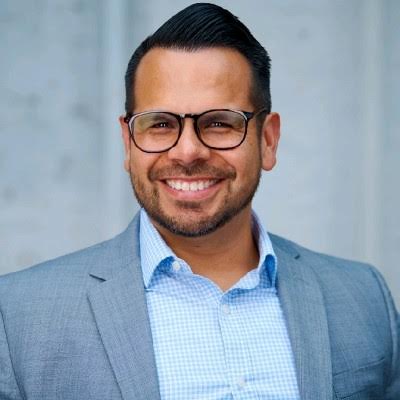One of the hardest things to do as a Christian leader—especially in high-performance spaces like elite graduate schools—is to talk honestly about failure. Not the kind of failure that turns into a clever leadership anecdote or a disguised win. But the kind that stays with you, that humbles you, that makes you question if you're really practicing what you preach.
As Area Director for InterVarsity Christian Fellowship’s Graduate and Faculty Ministries in Chicago, I work with future leaders in business, law, and medicine—many of them at schools like Booth, Kellogg, and Northwestern Law. These students are sharp, driven, and purpose-oriented. They know how to measure outcomes, build strategy, and execute. But they’re also trying to navigate how to integrate their faith with the pressures of performance. And I find myself walking that same path with them.
The Wake Up Call
Back in 2015, I had the privilege of helping with our annual business ethics conference called Navigating the Grey at the University of Chicago Booth School of Business. The conference originally emerged in the aftermath of the subprime mortgage crisis, when Christian students and business leaders were asking what ethical leadership looked like in an age of corporate collapse.
What does it mean to make decisions when the right answer isn’t black or white?
That year, the student leaders and I worked tirelessly to make it a success. We secured funding, built an incredible lineup of speakers, and filled over 700 seats. The dean of the school opened the event. Christians in Business, the student group I advise, won a leadership award. It was a mountaintop moment.
What no one saw, though, was the pressure I quietly absorbed. The pressure to top it the next year. The internal voice whispering, “You have to outdo yourself. You can't go backward.” As someone who identifies as a Type 3 on the Enneagram—the achiever—it was easy to let that success become the new baseline.
Over time, I started evaluating my leadership less by faithfulness and more by metrics. I still talked about living for the “Audience of One,” but my heart was often more anxious about turnout than transformation. I told students not to find their identity in success, while I was quietly doing just that.
Then came the years when events didn’t go as planned. Fewer RSVPs. Speakers backing out. Technical hiccups. Or even just that subtle feeling that we weren’t quite reaching the same impact. I found myself wrestling with disappointment, with comparison, with doubt.
How could I be teaching others about trusting God in their leadership while privately striving for my own validation?
New Measures, New Perspectives
That’s when I realized something important: failure isn’t the opposite of leadership—it’s where real Christian leadership gets formed. It’s where you model repentance instead of perfection. It’s where you admit when your motivations were off, when your expectations were misplaced, and when your anxiety was leading the way more than your faith.
There were times I had to sit with students and say, “I’m sorry—I pushed too hard.” Or, “I was more focused on success than on your formation.” Or even just, “I was afraid of looking like I failed.” And every time I did, something powerful happened. Not only did the pressure lift, but our community became more honest, more human, and more Christ-centered.
I started to lead differently. I began praying with students not just for the event’s success but for our own hearts to stay rooted. I asked questions like, “What is God forming in us through this process?” instead of “How many are registered?” I reminded our team—and myself—that obedience is more important than outcome. That faithfulness is success.
And maybe most importantly, I stopped trying to recreate 2015. I let it be a gift, not a standard. I freed students from the expectation of topping it and reminded them—and myself—that their worth isn’t in how many people show up or how prestigious the speaker is, but in the fact that they are beloved children of God.
New Vision, New Rhythms
Now, as I lead a team of staff who disciple graduate students across Chicago, many of whom are just as ambitious and visionary as I was, I find myself returning to this rhythm of repentance and resilience. I want to model for them what it means to lead with integrity, not performance. To be willing to admit when we’re not okay. To rest in grace, not just hustle harder.
The students we serve are preparing to lead in boardrooms, courtrooms, hospitals, and tech companies. They’re the future of industries that desperately need ethical, grounded, and spiritually mature leaders. But they also need to know that failure is not fatal. That making mistakes is part of learning. That grace is real—and that we, as their mentors and leaders, need it just as much as they do.
I don’t always get it right. I still feel the tug of comparison. I still battle the internal pressure to prove myself. But I’m learning, slowly and surely, to trust God in more practical ways. To pause. To pray. To listen. To release control.
The main thing isn’t how many people showed up. It’s whether we stayed faithful to the calling. Whether we loved well. Whether we pointed others to Jesus.
If you’re a Christian leader navigating your own grey area of success, failure, and identity—I see you. And I’d encourage you to talk about it. Not just with your team, but with the God who already knows. You might be surprised how much freedom comes when you stop trying to be impressive and start being honest.
That’s where real leadership begins.
Lakelight Monthly
Curated resources, delivered on the last Saturday of the month.
By subscribing you agree to with our Privacy Policy and provide consent to receive updates from our company.














